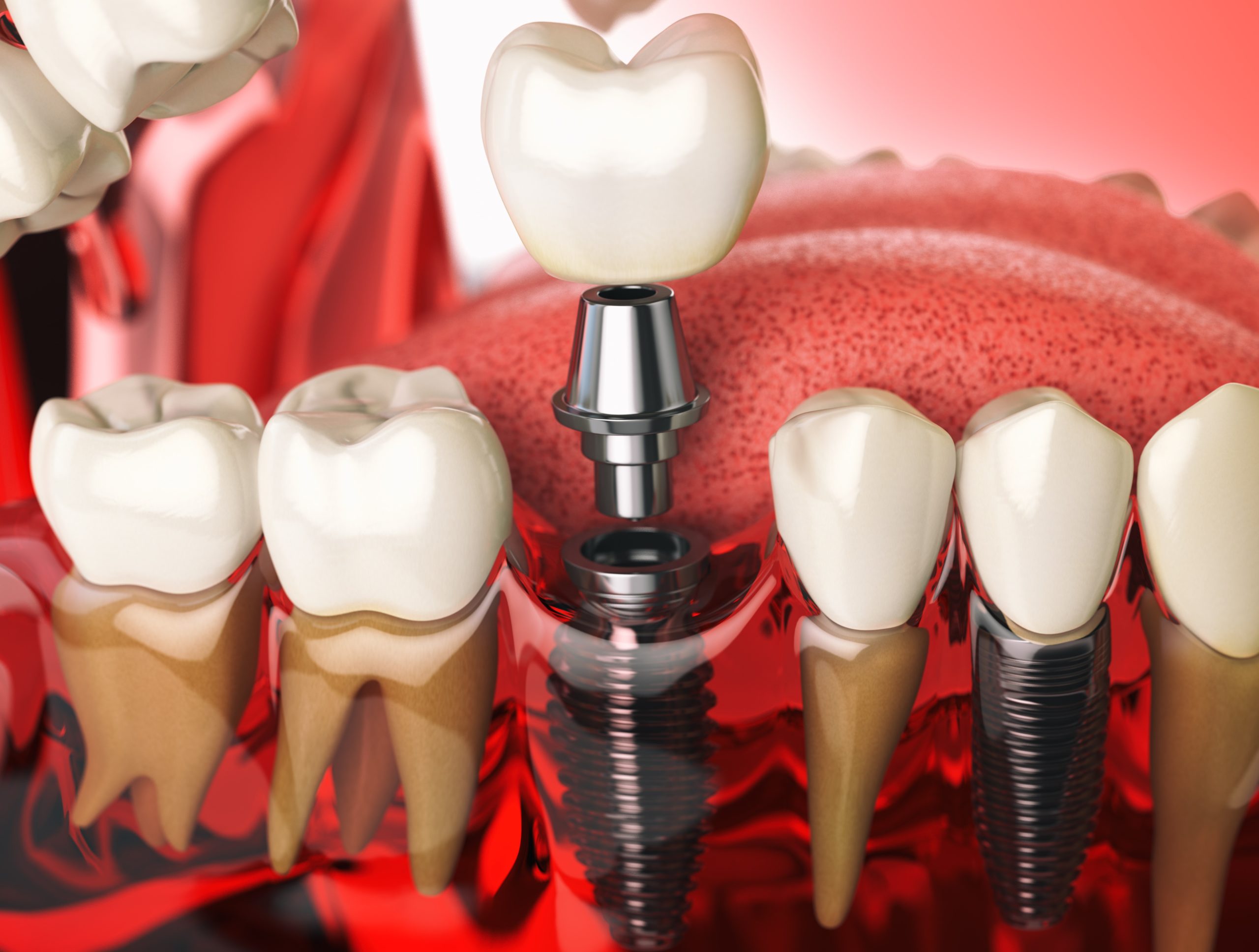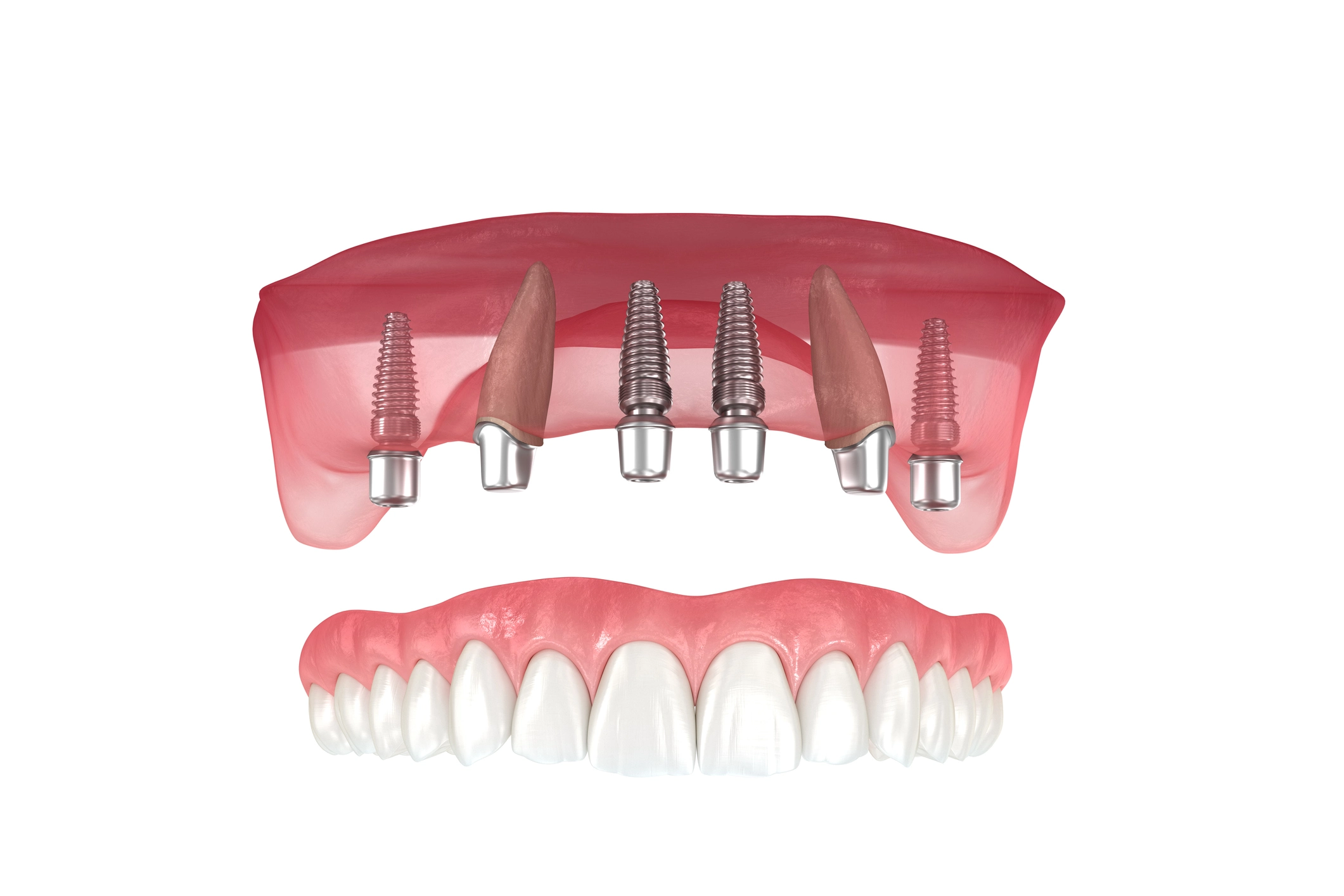Dental Implants – The Basic Information
Dental implants are dental units that replace missing teeth in the oral cavity. The procedure for dental implant is a surgical one and it involves replacing the tooth root with a metallic, screw-like post. Additionally, it also replaces the missing tooth with an artificial one.
Dental implant is a fantastic alternative to dental bridgework. Considered the gold standard by dental experts, implants have come a long way since their advent in the early 1950s. The best thing about dental implants is that with proper care, they can last a lifetime.
When Are Dental Implants Advised?
As mentioned before, dental implants are great for replacing your missing teeth. These dental units may be right for you if you –
- Have one or multiple missing teeth
- Are an adult, meaning your jaw bone is fully developed
- Have adequate bone material to secure the dental implants
- Follow proper oral hygiene and have a healthy mouth
- Don’t have any debilitating health conditions
- Cannot wear dentures
- Are willing to commit to the time it takes to fit the implant
- Do not smoke
How Are Dental Implants Placed Step By Step?
The procedure for getting dental implant takes place over a considerable period and via multiple steps. Read on to know about the step-by-step process.
Preparation
The procedure for dental implants involves meticulous planning and possibly a variety of specialists – an oral surgeon, a periodontist, and a prosthodontist. An oral surgeon is a dental expert in oral surgeries, periodontists specialize in the treatment of supporting structures of the teeth, and a prosthodontist designs and fits the artificial teeth.
Before they get started, your dentist will put you through a comprehensive evaluation. This includes –
- Digital imaging like X-rays and models made of your oral cavity
- Review your medical history, including any prescription and over-the-counter medication you’re taking.
- Creating a custom treatment plan for you while taking the condition of your oral health into account.
Since the treatment involves invasive surgery, you will receive different options of anesthesia. These will include local anesthesia, general anesthesia, or sedation. Your dentist will discuss which option is best for you and proceed from there.
Placement Of The Dental Implant Post
Once the anesthesia has been administered, your dental surgeon will make an incision in the gum and expose the bone. With the help of a surgical tool, holes are drilled within the bone. The metallic implant post is placed deep within the jaw bone.
The site is then stitched back up and the patient is sent home to recover. You will also be given medication to control any post-surgical soreness and reduce the risk of infection.
The Waiting Period
After the implant post has been placed, you are sent home to recover. During this period, the process of osseointegration takes place. In this, the jawbone grows around and into the dental implant surface, uniting with it.
This process can take anywhere from a couple of weeks to a few months. And while it may sound like forever, this time helps form a solid base to support the artificial tooth.
Placement Of The Abutment
When the fusion between bone and implant post is complete, the abutment is placed. The abutment is the middle part of the implant – that connects the base to the artificial tooth. It is a minor surgical procedure performed under local anesthesia in an outpatient setting.
- The gums are reopened to expose the dental implant
- The abutment is attached to the implant base
- The gum tissue is stitched back around the abutment and not over it
In some cases, the abutment is placed along with the implant post. This prevents an extra surgical step. After placing the abutment, you are sent home for about 2 weeks to allow the gums to heal and recover.
Placement Of The Artificial Tooth
When the gums have healed, impressions are made of the upper and lower jaws. These are used to fabricate the artificial tooth. Your dentist will help you choose the kind of artificial tooth that is right for you. This can be removable, fixed, or a combination of both.
Aside from a single crown, implants can also be used to replace multiple or all missing teeth. This is done by using implant-supported dental bridges or dentures.
Things To Know Before Getting Dental Implant
Implants Look and Work Like Natural Teeth
The roots of natural teeth give them stability because they’re embedded in the jaw bone. This helps the tooth translate the power of the jaw bone into biting, chewing, and grinding. Dental implants function similarly.
The titanium posts are embedded in the jaw bone, thereby mimicking a natural tooth root. After osseointegration is complete, the foundation is incredibly stable, allowing the entire prosthesis to function like a natural tooth.
The Procedure Isn’t Painful
While it sounds painful, the dental implant procedure is painless. This is due to the use of anesthesia. You will not feel any pain during the procedure, keeping you calm and composed.
The Procedure Involves A Great Deal Of Time Investment
As understood, the entire process for a dental implant takes considerable time. Starting with the consultation, examination, surgical procedures, and the multiple weeks of healing, it takes about a year till the last step.
Similar To Natural Teeth, Implants Require Protection Against Gum Disease
Dental implants can not be affected by gum disease. However, they aren’t invulnerable to bacteria. If you fail to care for your oral health, it can facilitate the proliferation and spread of gum disease. This will eventually compromise your new teeth.
Care for your implants by –
- Brushing morning and evening
- Flossing at least once a day
- Using a water floss to clean underneath the false tooth
- Using an antibacterial mouth wash
Dental Implant Can Last A Lifetime
Implants have a staggering 98% success rate. With proper care and due diligence, they can last a lifetime.
To find out more information on the dental implant process at River’s Bend Family Dental, get in touch with our dental experts today. You can schedule a consultation by dialing (763) 576-1855.



